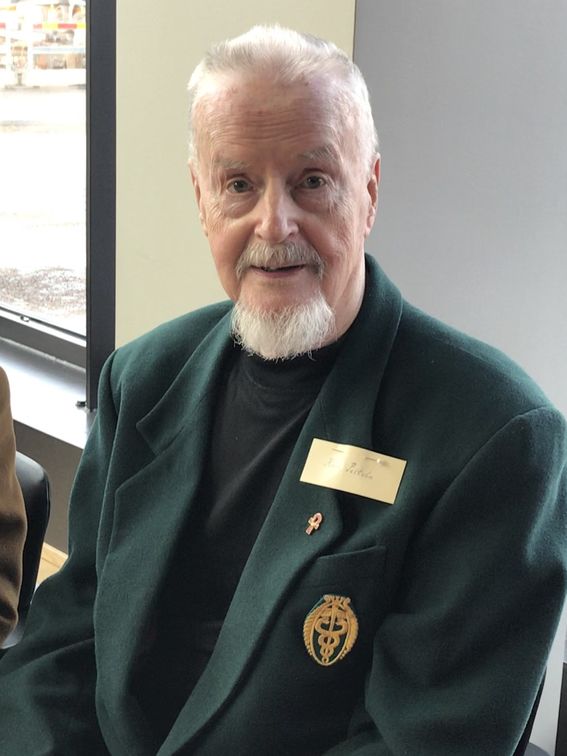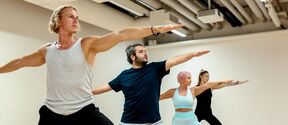Onerva Vartiainen: ‘I am remarkably grateful for everything the School of Economics gave me’

Eleven vigorous fellow students and alumni of the class of 1952 convened for the traditional class lunch organised in the premises of the School of Business in Otaniemi. The convener Onerva Vartiainen recalls how her studies began at the School of Economics (now School of Business) in the autumn of 1952:
At the beginning, there were 280 students. The autumn semester began with a festive opening ceremony in the banquet hall. From there, we were directed to the Great Lecture Hall (later NOKIA Hall) where then 25-year-old Fedi Vaivio told us about the school’s history and familiarised us with the subjects. He finished the introduction by saying: ‘You will graduate as good pastries from this Hilden Bakery.’ At the time, the School of Economics was commonly referred to as the Hilden Bakery. This was due to the fact that a large bakery of the same name operated in Helsinki, and the name of the school’s rector happened to be Kaarlo Hildén.
It was comforting to see a young person on the stage, as the opening procession was mainly participated in by older gentlemen. At the time, Fedi Vaivio was a Licentiate of Economics. He received his doctoral degree in 1959 and later served as Rector (1990–1992) and Chancellor (1992–1995) of the School of Economics.
The construction of the new School of Economics building on Runeberginkatu Street had been completed in 1950. Already during the first walk in the lower lobby, Vartiainen could feel a breeze from the “wider world”. Everything felt great and grandiose for the small-town student. The halls were lit by brand new lamps designed by one of Finland’s greatest lighting fixture designers, Paavo Tynell.
And so began our studies
In the history of the School of Business, our class was an exceptional one, Vartiainen continues her memoirs. Previously, students had only had one and a half year of common studies in business subjects. As women were not encouraged to strive for leading positions at the time, after one and half years, female students would mainly study languages, type writing and shorthand.

The teaching staff considered that the title of Bachelor of Economics was granted to women too easily. Therefore, we all studied National Economy, Business Law, Business Economics I and II (current names could be ‘Accounting’ and ‘Business Economics’) and Economic Geography together. In the first year, common subjects included Business Mathematics, Chemistry as well as Goods and Commodities. There were small groups for languages and optional subjects. The common two-year studies created a good class spirit.
However, the teaching staff soon noticed that companies and communities still needed correspondents and secretaries. In the autumn of 1953, a programme secretaries and correspondents was established to parallel the business studies. There were two male students (not Kari Peltola in the picture) among the new programme’s students.
We graduated in spring 1955
As the majority of us were able to complete our studies in the minimum time, we walked to the banquet hall as a long double file for the distribution of certificates at the end of May. In the evening, we celebrated the completion of our studies at the KY’s club facilities. This is where the host of both the class and KY, Pekka Korpinen, suggested that we would convene once every five years. So, we have met every five years to reminisce how Antero Partanen’s Rafla Radio would broadcast news during every recess, how we would cover up for each other in roll calls, establish student companies on the proposal of Sales and Advertising Studies Lecturer Arvo Puukari, and all the fun we had in KY’s numerous club events. The class meeting in 1975 was particularly memorable because the parquet floor the Rafla Restaurant had been refurbished. We were only allowed to dance without shoes. But we did not have to worry as Olavi Niemi, Marketing Director at textile company Hyvon, brought white cotton socks to everyone.
Employment or further studies
At the time, Bachelor of Economics was a basic degree. It offered versatile opportunities, especially for men. Women were still mainly thought to be suitable for the duties of a secretary or a multi-lingual correspondent. When occupations were presented in the second year of studies, two economists were managing directors, while a female economist acted as a correspondent. There were no other examples.
In 1955, it was easy to find employment. As the payment of war reparations had been completed in autumn 1952 when Vartiainen’s studies began, all of Finland’s export revenue could finally be used for the benefit of the national economy. However, the currency shortage was still severe. The Foreign Trade Licence Office issued import licences four times a year. Vartiainen tells that she managed import transactions at an international company and often had to request an extension for the validity of offers in various languages as the required import licence had not yet been obtained. Offers were often requested as proforma invoices in order to present the exact amount of currency required to the Foreign Trade Licence Office.
Fifteen students of the class continued their studies after graduation. These included Eero Artto, Veijo Riistama and Eero Pitkänen, who later completed doctoral dissertations and acted as professors at the School of Business, as well as Veikko Jääskeläinen who, in addition to receiving a doctorate and acting as a professor, became the school’s rector.
Vartiainen, too, started to study towards a master’s degree alongside employment. Studying was lonely. Vartiainen recalls that there was only one basic lecture course held by Master of Economics Leo Ahlstedt who acted as assistant on the course Business Economics II. There was no business literature in Finnish, so the books were in Swedish, German, English, Norwegian and Danish.
Solemn conferment ceremony in 1961
The conferment ceremony of 1961 and the 50th anniversary celebration of the School of Economics were highlighted in various newspapers. A newsflash video was recorded on the balcony for the evening news. The Bearer of the Golden Staff cantata composed by Finnish composer and academic Uuno Klami was played for the first time. Klami attended the ceremony personally. He died a couple of weeks afterwards.
Fifty years later, at the 2011 conferment ceremony, Vartiainen was awarded the title of Jubilee Master (which can be granted to persons who received their degree 50 years ago). The ceremony reminded her of the Finnish folk dance franseesi practice that took place 50 years ago. This time, she watched the franseesi performance at Hotel Kalastajatorppa, after which she was asked to dance other traditional dances by a young Doctor of Science (Econ & BusAdmin), and another young Doctor of Science sang her a serenade. As usual, the rest of the evening was spent at the KY’s premises listening to more modern rhythms.
Today, Vartiainen is delighted by the fact that younger women who study at the School of Business can take it for granted that they will go far in business life. In her youth, there were no mentors to provide guidance in studies or work.
Onerva Vartiainen was interviewed by Terhi Ollikainen and this article is a summary of the Finnish interview.
Read more news

Are you tired of bad news?
The Laboratory of Hope exhibition presents ideas for a brighter future from 5th February to 27th March 2026
UniSport services at Aalto University in spring 2026
Group excericise classes and free break excercise for students and staff at Aalto University.Apply to be a guest professor or visiting researcher at the Université Grenoble Alpes
Unite! partner, Université Grenoble Alpes (UGA) has opened a call to host international professors and researchers for short stays.






